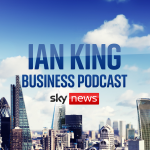Joe Biden has hailed a “major breakthrough” after the US and EU agreed to a truce in a near 17-year aviation trade dispute that will phase out billions of dollars in punitive tariffs.
The row, centred on the rivalry between aeroplane makers Airbus and Boeing, has spiralled into a series of tit-for-tat measures taking in a range of industries from motorcycle makers to cheese.
Resolving the dispute – which has also dragged in Britain’s Scotch whisky sector – leaves the two sides free to work together to challenge China over what they see as unfair practices.
Mr Biden has been seeking to reset his relationship with allies after the Trump era during visits to the UK and Europe this week.
He said: “I’ve been making the case that the US and Europe – and democracies everywhere – are stronger when we work together to advance our shared values like fair competition and transparency.
“Today’s announcement demonstrates exactly how that can work in practice.”
The trade dispute between the two sides dates back to cases brought by each of them inn 2004 alleging that they had unfairly subsidised Airbus – in Europe – and Boeing – in the US.
After years of legal wrangling at the World Trade Organisation, it resulted in the US imposing heavy tariffs on aircraft as well as other products ranging from cheese to wine and single-malt whisky.
The EU meanwhile imposed duties on billions of dollars’ worth of American imports from motorbikes to jeans and bourbon whiskey.
All told the tariffs cover trade worth $11.5bn and businesses have paid an estimated $3.3bn in duties.
But as relations with the White House thawed after Mr Biden’s accession, the two sides agreed in March to a four-month suspension of the charges.
There was a similar pause between the UK and the US – whose scotch industry had been caught up in the dispute as some Airbus parts are made in the UK and it was still a member of the EU when the row began.
Mr Biden said that Washington and Brussels have now agreed to suspend tariffs for five years and “committed to ensure a level playing field for our companies and our workers”.
He added: “Significantly, we also agreed to work together to challenge and counter China’s non-market practices in this sector that give China’s companies an unfair advantage.”
The two sides will continue to work to reach agreement on the overarching subsidies dispute.
US trade representative Katherine Tai said: “Today’s announcement resolves a long-standing irritant in the US-EU relationship.
“Instead of fighting with one of our closest allies, we are finally coming together against a common threat.”
Britain said it hoped for a similar deal within days.
A separate dispute over tariffs imposed by Donald Trump on steel and aluminium imports still lingers – and may prove harder to resolve as they are backed by many US metal producers and workers.
Analysis:
By Adam Parsons, Europe correspondent
In the eyes of European leaders, Joe Biden has three great things going for him.
Firstly, he’s seen as a pragmatist, who’s been around the block and knows that you have to earn trust through the familiar routine of give and take.
Secondly, he’s reckoned to be open-minded about the rest of the world, and keen to resume America’s traditional role as the fulcrum of global diplomacy.
Sources say he has come across as a thoughtful statesman, which has gone down well.
And thirdly?
Well, as far as the European Union, or NATO for that matter, is concerned, his real superpower is not being Donald Trump.
Gone – at least for the moment – are the diplomatic grimaces and the head-shakes.
Trump was supposed to be the arch deal-maker, but Biden’s first visit to Europe has ended with a plan to end the Boeing-Airbus stand-off, which has been rumbling on for nearly two decades.
There’s even been a smidgeon of progress around steel and aluminium tariffs, which had appeared to be an almost unpickable knot.
But there is one big challenge yet – will Biden stand up to Vladimir Putin, in the resolute way that European leaders have demanded?






















